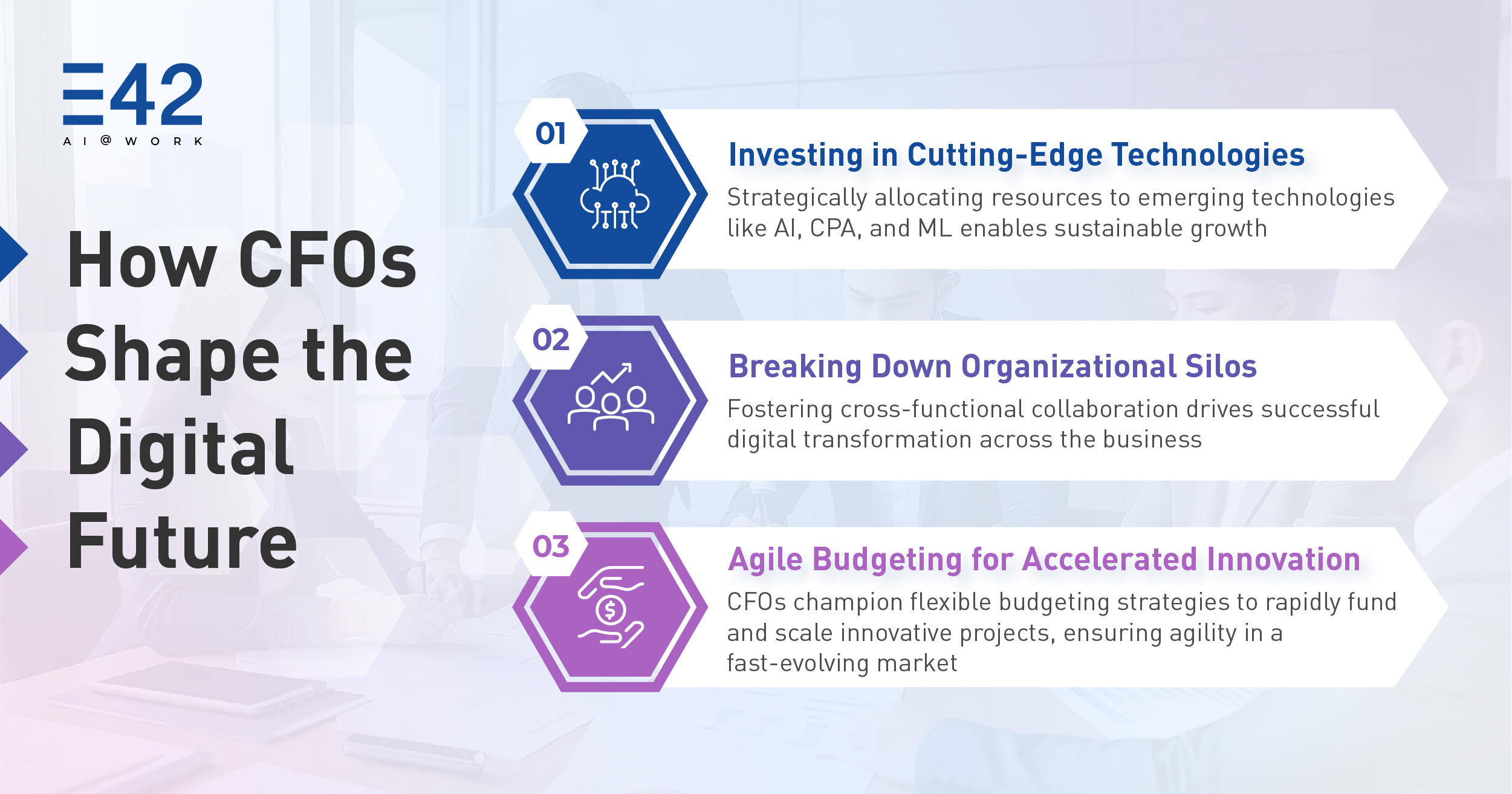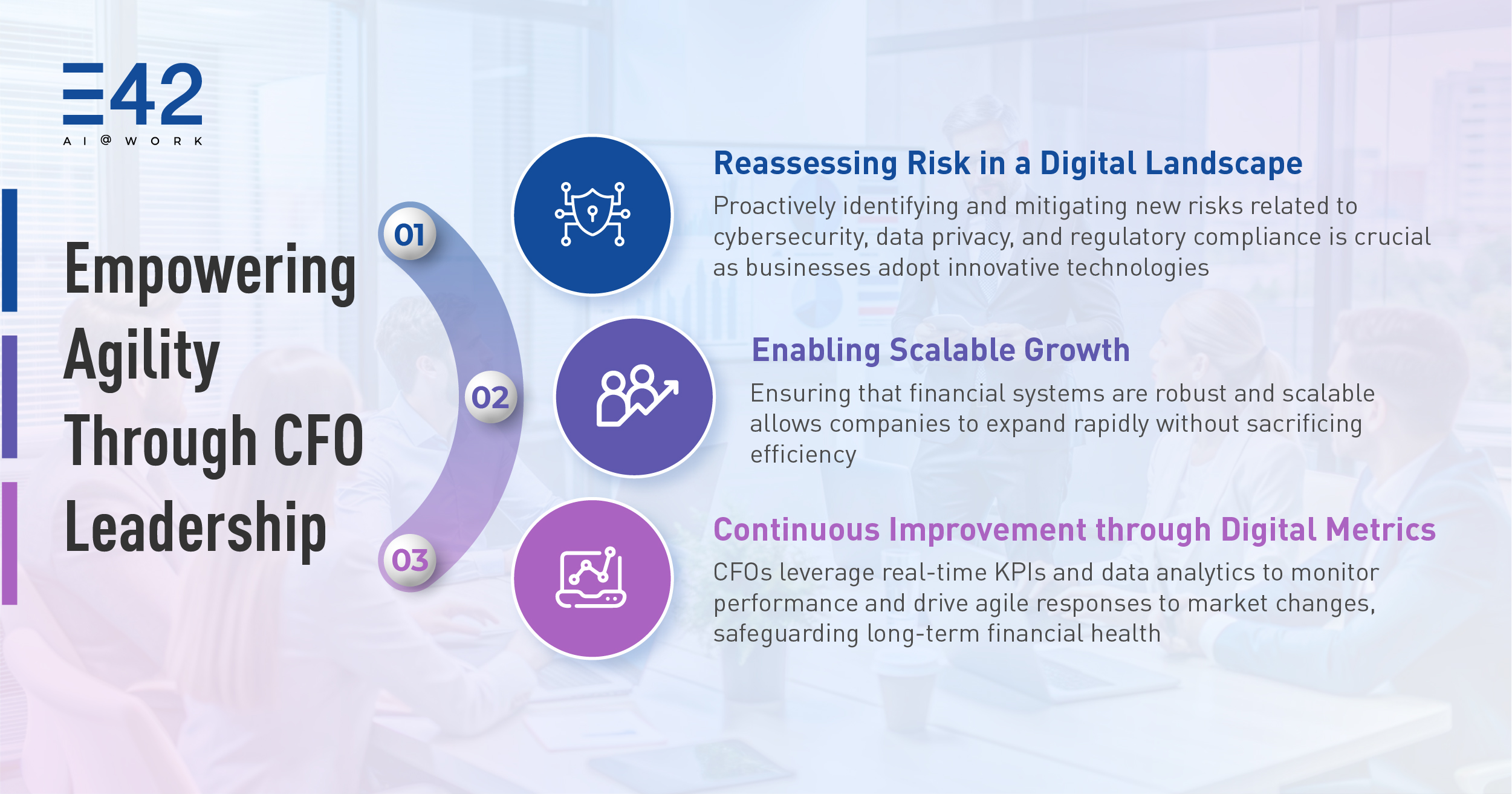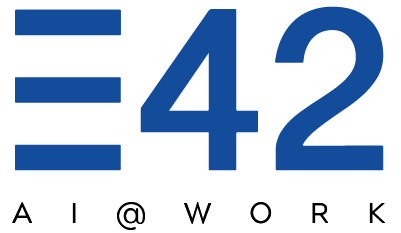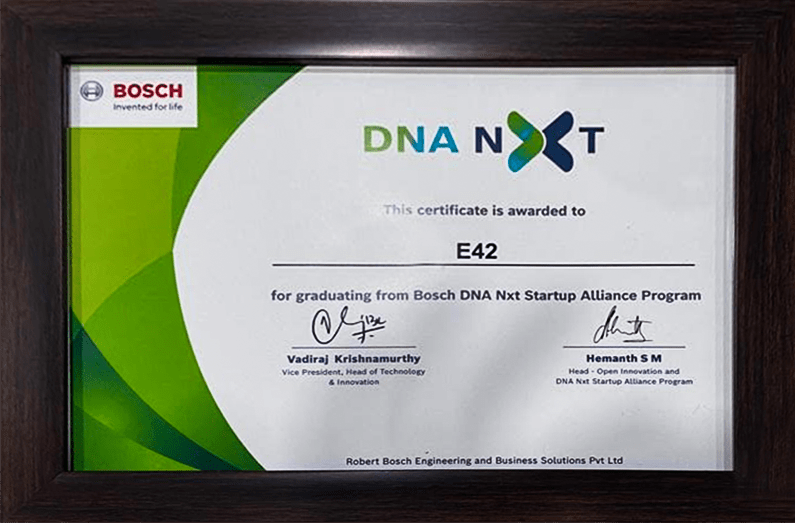Admit it: most people picture a person who is more worried about the company’s financial line than its future when they hear the title ‘Chief Financial Officer’ (CFO). Modern CFOs, however, are breaking well beyond that mold in the digital age. The role of the CFO has evolved, shifting from a purely numbers-focused role to one that is central to an organization’s innovation, agility and digital transformation. In fact, CFOs are becoming critical players in driving digital transformation.
But wait—what exactly is digital transformation? And why are CFOs leading the change? Let’s unpack this, and along the way, you’ll see how the right kind of financial leadership can be the cornerstone for an agile and innovative organization.
The CFO’s New Mandate: Navigating the Digital Frontier
Gone are the days when CFO roles and responsibilities were limited to ensuring financial compliance and risk management. Today, they are not just financial gatekeepers but strategic partners in driving technological innovations. Digital transformation involves the integration of technology into all areas of a business, fundamentally changing how it operates and delivers value to customers. For CFOs, this transformation represents an opportunity to play a more strategic role by:
- Streamlining Financial Processes with Technology: By leveraging AI and automation, CFOs can eliminate manual, repetitive tasks, making room for strategic decision-making. This frees up time for finance teams to focus on value-added activities like forecasting and analysis.
- Enabling Data-Driven Decisions: Digital tools allow CFOs to access real-time data and insights, which can then be used to guide not just financial decisions but overall business strategies. With data-driven foresight, CFOs can predict market trends, optimize resource allocation, and improve financial performance.
- Transforming Business Models: Digital transformation is not just about upgrading technology but also about rethinking traditional business models. The role of CFOs in digital transformation now includes evaluating the financial viability of new digital initiatives, ensuring they align with the company’s long-term goals.
Driving Strategic Innovation: CFO as the Innovator

As organizations look to innovate, CFOs are crucial in ensuring that digital investments align with the overall strategic vision of the company. But how exactly does a CFO drive innovation?
- Investing in Future-Proof Technologies: With the proliferation of emerging technologies like AI, Cognitive Process Automation (CPA), blockchain, and machine learning, CFOs are challenged with making the right investment choices. Their ability to foresee the long-term benefits of these technologies and justify their cost is critical in ensuring that companies don’t fall behind in the digital race. Consider the case of Procter & Gamble (P&G). The company’s CFO, Jon Moeller, led the push for a digital overhaul by investing in AI and data analytics. This move not only helped streamline supply chain operations but also boosted profitability by optimizing marketing efforts with data-driven strategies.
- Breaking Down Silos: Digital transformation requires cross-functional collaboration. CFOs, with their roles and responsibilitiesencompassing a comprehensive view of the entire organization, are well-positioned to break down silos and encourage cooperation across departments. This is particularly important when rolling out large-scale digital projects that impact multiple areas of the business, ensuring alignment and smooth execution.
- Agile Budgeting for Rapid Innovation: Traditional budgeting cycles can stifle innovation due to their rigid, annual nature. The role of CFOs in digital transformationnow includes championing agile budgeting, allowing for more flexibility and quicker responses to new opportunities. By enabling iterative funding for experimental projects, CFOs foster a culture of continuous innovation. General Electric (GE) embraced agile budgeting to speed up its digital transformation efforts. CFO Jamie Miller supported an agile funding model that allowed GE to pivot quickly and invest in emerging technologies without being hamstrung by lengthy approval processes. This approach helped the company stay competitive in a fast-moving digital landscape.
Fostering Organizational Agility: A CFO as the Catalyst for Change

In an era where market conditions can change overnight, agility is paramount. CFOs are pivotal in creating a more agile organization by focusing on financial flexibility, risk management, and adaptability. Here’s how:
- Reassessing Risk in a Digital World: As businesses adopt new technologies, the risk landscape shifts, presenting new CFO challenges.CFOs must navigate new risks related to cybersecurity, data privacy, and regulatory compliance. Being proactive in identifying these risks and developing mitigation strategies is a critical part of fostering agility. Companies like Cisco have made cybersecurity a priority in their digital transformation journey. Their CFO works closely with the Chief Information Officer (CIO) to ensure that new digital initiatives are backed by robust security measures, thus reducing the company’s exposure to cyber threats.
- Enabling Scalable Growth: Digital transformation allows companies to scale rapidly, but only if the financial infrastructure is in place to support such growth. CFOs play a key role in ensuring that the company’s financial systems are scalable and can support increased demand without compromising efficiency while backing digital transformation initiatives.
- Continuous Improvement through Digital Metrics: The introduction of digital tools allows CFOs to monitor key performance indicators (KPIs) in real-time, ensuring that the company remains agile and responsive to market changes. By tracking digital transformation progress and making data-driven adjustments, CFOs can ensure the company’s long-term financial health.
Case in Point: Microsoft’s digital transformation, spearheaded by CFO Amy Hood, involved a heavy reliance on data analytics to monitor performance and make real-time decisions. This approach allowed Microsoft to pivot its business model toward cloud computing, driving revenue growth while maintaining operational efficiency.
CFOs and E42—Partners in Digital Transformation
In any enterprise, the CFO must have an intimate understanding of the company’s financial health. From managing cash flow to ensuring that resources are allocated efficiently, a CFO plays a pivotal role in keeping the organization financially sound while driving digital transformation. Yet, despite increasing technology investments, 88% of CFOs do not see a significant return on investment from their digital initiatives, according to a PwC report. One process that can drive this ROI is Accounts Payable automation, where advanced technologies like AI and Cognitive Process Automation (CPA) are making a profound impact.
Accounts Payable Automation for Today’s CFOs
Enter the AI Accounts Payable Executive, built on E42, a no-code CPA platform. This AI-driven solution transforms invoice processing by automatically verifying invoice data, cross-referencing it with purchase orders, and processing payments with remarkable precision. Achieving a 90% straight-through processing (STP) rate and enabling near-touchless invoice handling, it minimizes manual intervention while ensuring operational efficiency. CFO’s roles and responsibilities now include overseeing such automation initiatives to drive efficiency and reduce operational costs.
Within just 15 minutes of deployment, the AI establishes baseline accuracy, continuously enhancing it through progressive learning. Over time, this has enabled the AI Accounts Payable Executive to extract data from more than 10 million invoices with over 95% extraction accuracy, even for the most complex formats, including skewed layouts and handwritten entries. By eliminating delays and discrepancies in payments, this intelligent automation not only boosts internal efficiency but also strengthens supplier relationships.
The Measurable Benefits of AI-Led End-to-End AP Automation
The financial benefits of such automation are striking. Manual invoice processing can cost up to $12 per invoice. In contrast, automating the process with the AI AP Executive can reduce the cost to as little as $1 per invoice, improving efficiency by over 85%. Moreover, poor data quality has significant financial implications—MIT reports that companies lose between 15% and 25% of their revenue due to errors, rework, and inefficiencies resulting from bad data. Automating Accounts Payable with AI prevents such costly errors, protecting revenue and streamlining operations.
Discover how E42’s AI-led automation solution can revolutionize your Accounts Payable process and accelerate your financial transformation. Contact us today at interact@e42.ai.



